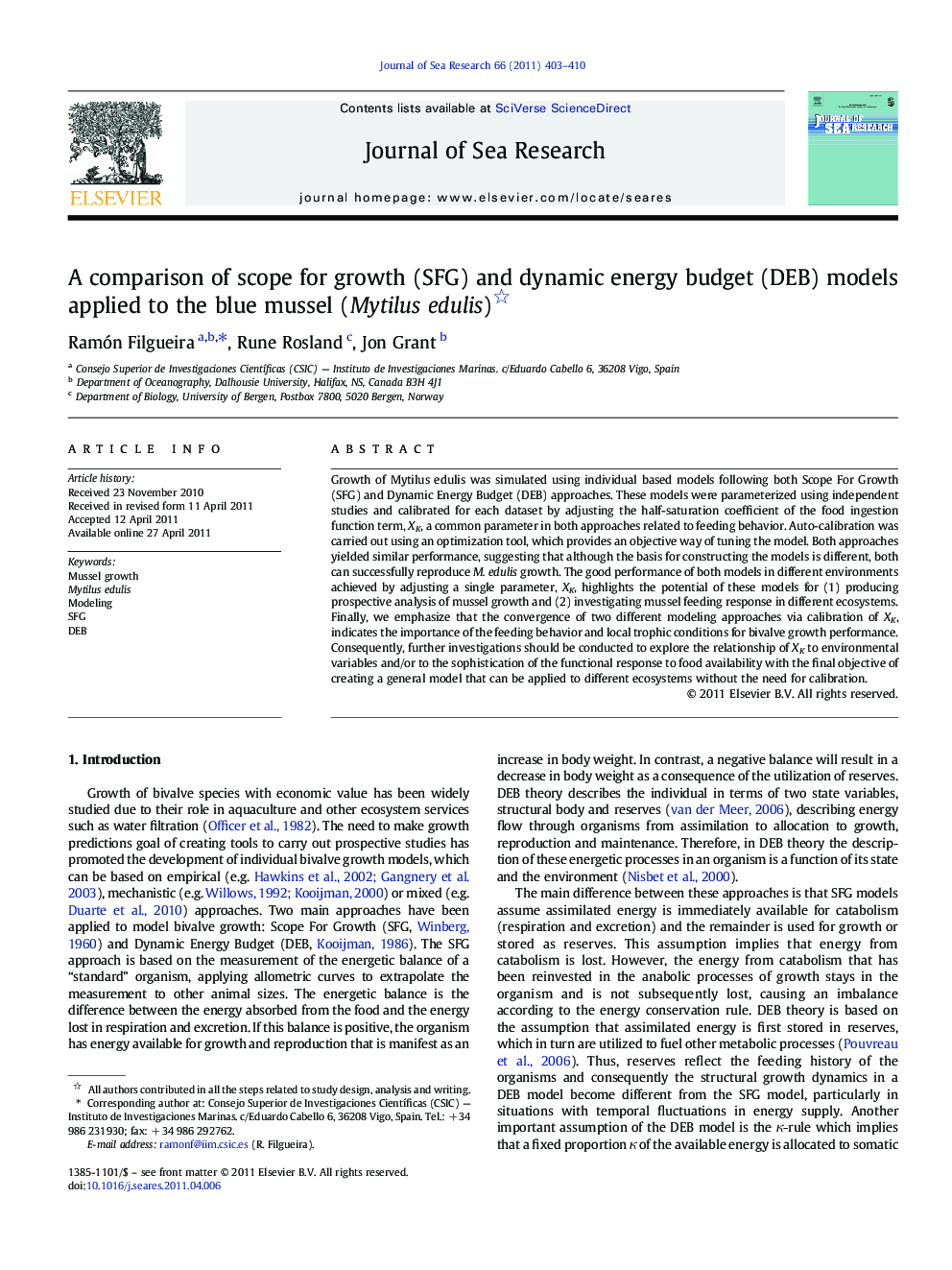| Article ID | Journal | Published Year | Pages | File Type |
|---|---|---|---|---|
| 4550034 | Journal of Sea Research | 2011 | 8 Pages |
Growth of Mytilus edulis was simulated using individual based models following both Scope For Growth (SFG) and Dynamic Energy Budget (DEB) approaches. These models were parameterized using independent studies and calibrated for each dataset by adjusting the half-saturation coefficient of the food ingestion function term, XK, a common parameter in both approaches related to feeding behavior. Auto-calibration was carried out using an optimization tool, which provides an objective way of tuning the model. Both approaches yielded similar performance, suggesting that although the basis for constructing the models is different, both can successfully reproduce M. edulis growth. The good performance of both models in different environments achieved by adjusting a single parameter, XK, highlights the potential of these models for (1) producing prospective analysis of mussel growth and (2) investigating mussel feeding response in different ecosystems. Finally, we emphasize that the convergence of two different modeling approaches via calibration of XK, indicates the importance of the feeding behavior and local trophic conditions for bivalve growth performance. Consequently, further investigations should be conducted to explore the relationship of XK to environmental variables and/or to the sophistication of the functional response to food availability with the final objective of creating a general model that can be applied to different ecosystems without the need for calibration.
Research highlights► Growth of Mytilus edulis was modelled using both SFG and DEB theories ► Both models achieved good performance by adjusting only the Michaelis-Menten term ► The convergence in XK highlights the importance of feeding behaviour and trophic conditions
